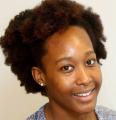
ALTHOUGH there are 11 million people with hearing loss in the UK, new research has revealed a staggering 94 per cent of Brits know no more than two words of British Sign Language (BSL).
Adult education college City Lit crunched the numbers in time for Deaf Awareness Week and found more than a quarter of people (27 per cent) feel embarrassed not being able to communicate with sign language users.
But a further 59 per cent of the 1,003 British people surveyed last year want sign language to be made part of the national curriculum rather than schools having the option to teach it if they want to.
Chris Smith, secretary of Colchester Deaf Club, was shocked to learn how few people know any sign language.
The former chairman said: “I totally agree BSL should be taught in all schools to make this official for all to learn the beautiful visual language.
“It still prevails that many deaf people feel left out at times in the community during social hearing gatherings.
“I was brought up as an oralist [a profoundly deaf person who uses speech and lip-reading to communicate] at a private school for the deaf in London with my family all being hearing.
“However I learnt BSL on joining Colchester Deaf Club partly for making friends and doing things like trips about 25 years ago.

The NHS estimates there are at least 24,000 people in the UK who use BSL as their primary language.
It was recognised by a language in its own right by the British government in 2003 and the Scottish Government in 2011.
The Irish Sign Language Act was passed much later in 2017.
Sue and Nick Stovell live in Suffolk, but travel to Colchester Deaf Club in Harwich Road each month with help from RAD, the Royal Association for Deaf People, headquartered in Colchester.
They are in their 70s and were born deaf.
Their two sons are hearing but are fluent sign language users.
Nick said: “We think all schools and colleges should teach BSL and also awareness of what it’s like being deaf, and how we struggle with communication in public places.
“There must also be interpreters and community support workers in hospitals and doctors’ surgeries.”
The research suggests one common area of daily life where people with hearing loss might feel marginalised is in the workplace - just one in five said their employer has measures in place to help people communicate with deaf colleagues.
Research by the NHS has shown almost three quarters of deaf people (74 per cent) felt their employment opportunities were limited because of their disability, and more than two-thirds (68 per cent) have felt isolated at work.
One of RAD's key services is upskilling deaf people to gain employment and befriending isolated older deaf people.
Amanda Casson-Webb, a joint chief executive of the charity, explained deaf people consider themselves to be a "linguistic minority and not disabled".
"To the deaf community, deafness is not a problem that needs to be fixed," she added.
BSL is usually the first or preferred language for profoundly deaf people in the UK.
When you see the word 'Deaf' written with a capital ‘D’ it is not a typing error – it is used to express pride.
"Can you imagine how it feels when you communicate in your first language and most people don’t understand you? Or when you need to access a website or important document in your second language?," Amanda continued.
"The lack of legal recognition means that deaf people continue to face communication barriers in their daily lives. Everyday tasks like making a medical appointment or dealing with a delay on public transport can be a real challenge."
If you are within the 60 per cent of people who would like to learn to communicate better with BSL users, test your knowledge with this special quiz.
If you live in the north of Essex and would like to learn BSL, these are some places which offer courses.
- Colchester Institute
- The Philip Morant School and College
- ACL Essex
- Royal Association for Deaf People
Find more information here.



Comments: Our rules
We want our comments to be a lively and valuable part of our community - a place where readers can debate and engage with the most important local issues. The ability to comment on our stories is a privilege, not a right, however, and that privilege may be withdrawn if it is abused or misused.
Please report any comments that break our rules.
Read the rules here